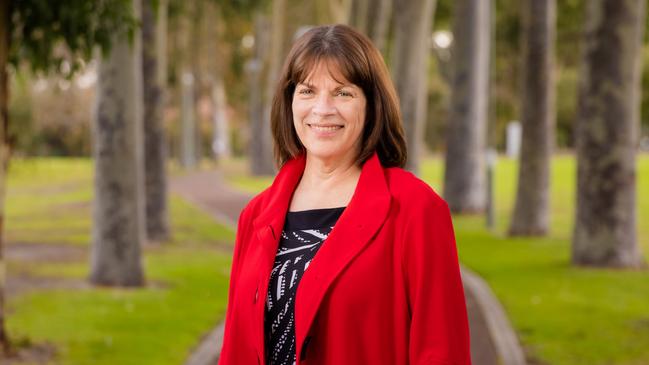ATN unis call for a 35pc flat cap on international students
Technology universities want a flat 35 per cent cap on international students which could cost Group of Eight universities $1bn a year in lost tuition fees.

Universities are deeply split over the federal government’s planned caps on international students, with technology institutions calling on Education Minister Jason Clare to force Group of Eight universities to shed about 20,000 international students at a cost to the elite university group of up to $1bn a year.
In a letter to Mr Clare, the six vice-chancellors of the Australian Technology Network of Universities call on him to declare a 35 per cent flat cap on the number of international students on their onshore campuses when he begins negotiations with universities over limiting international student numbers.
This would force at least four Go8 universities – Sydney, Monash, Melbourne and Queensland – to cut their international student intake.
A 35 per cent cap would require at least 20,000 fewer international students at four Go8 universities (based on the most recently available 2022 data), which would cost $1bn a year in lost student fees, assuming typical Go8 international fees of $50,000 a year.
The University of Sydney, whose student population was 47.5 per cent international in 2022, would suffer most, shedding nearly 10,000 international students.
Group of Eight CEO Vicki Thomson attacked the ATN proposal as “arbitrary and nonsensical”. She said the ATN proposal for a flat cap ignored many “nuanced” issues affecting universities such as their mix of undergraduates and postgraduate students, their students’ country of origin, and the mix of disciplines students studied.
The letter to Mr Clare is signed by six university leaders – Curtin University’s Harlene Hayne who chairs the ATN, Deakin University’s Iain Martin, RMIT University’s Alec Cameron, the University of Newcastle’s Alex Zelinsky, the University of South Australia’s Joanne Cys and University of Technology Sydney’s Andrew Parfitt.
Mr Clare’s department will soon begin individual talks with universities to set a cap on their individual student enrolments, and the ATN universities’ letter said it would be difficult to meet the needs of the whole university sector without guides on international student limits.
“Therefore, we propose that the negotiations with universities start from an assumption that there should be maximum 35 per cent onshore (headcount) international enrolments as a percentage of institutional total onshore student load (excluding higher degree by research international enrolments and short-term mobility students),” the letter said.
In an article on student caps in today’s edition of The Australian, ATN executive director Ant Bagshaw writes: “Setting a limit – around one in three students comes from overseas – should provide confidence to the public that Australian universities are striving for Australians.”
None of the ATN universities have more than 35 per cent international students.
The ATN letter to Mr Clare reflects deep frustration among non-Go8 universities that most Go8 institutions attract large numbers of high-fee-paying Chinese students, while universities outside the elite group have struggled to rebuild student markets in India and other South Asian countries since the pandemic.
Non-Go8 universities have also suffered disproportionately from the Albanese government’s student visa crackdown, which disproportionately affects universities with more Indian students because they have higher visa risk ratings. They are also more likely to suffer from this week’s 125 per cent hike in the student visa application fee.
University of Sydney vice-chancellor Mark Scott criticised the ATN proposal. “Imposing a blanket cap is a simplistic approach to a complicated problem and takes a one-size-fits-all strategy that is potentially very damaging to the sector and Australia’s reputation,” he said.
Professor Scott said international student fees helped fill the research funding gap identified in the government’s recent Universities Accord review.
The Business Council of Australia agreed, warning in its submission to the government on the caps legislation that a “blunt cap” would cut into a revenue stream which funds research and would ultimately be “counter-productive”.
The BCA said caps could see Australian universities fall in global rankings and increase pressure on the government to “bridge this funding gap”.
“International student revenue is essential for research efforts and the teaching of domestic students,” the BCA said.
“A blunt cap on international student numbers will place these activities at risk.
“Unless significant additional government funding is planned for the sector, a cap will also limit universities’ ability to meet the government’s ambitious equity and attainment targets.”



To join the conversation, please log in. Don't have an account? Register
Join the conversation, you are commenting as Logout